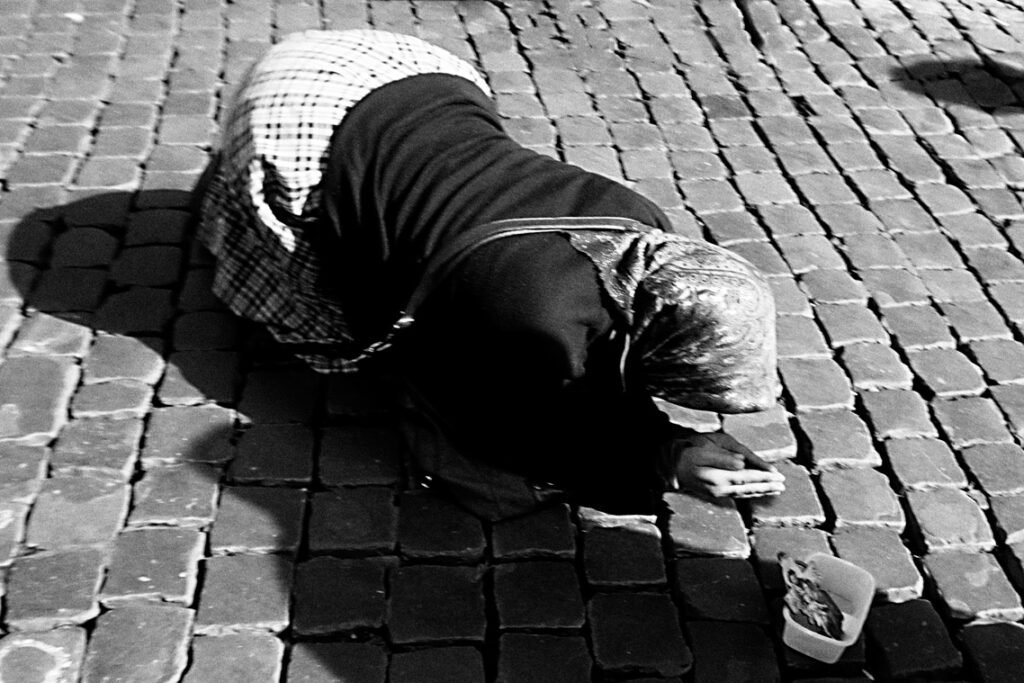
She kneels on the stone, just beside the curb, beneath the shadow of a marble colossus, where tourists lift their phones to capture history but never turn to see her.
A Romani woman, her back bent, head covered in a faded scarf the color of old wine. Her knees press against the cobblestones, hands stretched out—not forcefully, but open, still, as if waiting for God or pity,
whichever comes first. She doesn’t speak. She doesn’t need to. The bowl in front of her says enough—
a dented metal dish with three coins, two of them foreign.
People pass. A woman in designer sandals steps around her, eyes fixed on a gelato stand. A man in a linen suit barely shifts, his espresso to-go more pressing than her hunger. A child looks at her too long.
His mother tugs his hand and says, “Don’t stare.”
But she is something to stare at—not for her poverty, but for her stillness. She is the only thing in motionless prayer in a city built on devotion. The stone beneath her burns from the afternoon sun.
Her skirt clings to her calves. She does not lift her head. She doesn’t see the coins dropped carelessly.
Or the ones snatched back. Or the long stares that last just a second too long before vanishing into shopping bags.
Rome rises around her—triumphal and golden, full of gods and popes and power, its palaces gleaming, its history on full display. But she kneels at the feet of that greatness, unseen, unheard, offering the only thing she has left: her silence, her open hands, her presence.
And in this city that never forgets its emperors, she will be forgotten by nightfall.